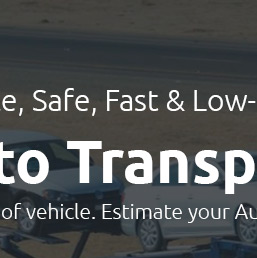 |
|
||||
 |
 |
 |
 |
||
 |
 |
|||||
 |
 |
 |
 |
 |
 |
 |
||
 |
 |
 |
 |
 |
 |
 |
 |
 |
 |
 |
|
 |
How to Get a Car Shipped: A Comprehensive GuideWhen it comes to getting a car shipped, there are myriad considerations to bear in mind to ensure a smooth and hassle-free experience. Whether you’re moving across the country or purchasing a vehicle from a distant seller, understanding the nuances of car shipping can make a substantial difference in terms of cost, convenience, and peace of mind. This article delves into the essential aspects you should consider when arranging for your car to be transported, offering practical advice and insights along the way. Firstly, it is crucial to conduct thorough research on potential shipping companies. Reputation is paramount, so take time to read reviews, ask for recommendations, and check the company’s ratings with the Better Business Bureau. A well-regarded company not only ensures that your vehicle arrives safely but also provides a reliable timeline and professional service. Choosing a company with a proven track record can significantly reduce the stress associated with shipping a car. Once you've identified a few potential shippers, it's important to compare quotes. Cost can vary dramatically based on factors such as distance, vehicle size, and shipping method. An open carrier is typically less expensive than an enclosed carrier, but the latter offers additional protection from the elements, which might be worth considering for high-value or classic cars. It's wise to balance cost with the level of service you require, and remember that the cheapest option is not always the best. Next, think about timing and scheduling. Car shipping is often not an overnight process; depending on the distance, it can take several days to a few weeks. Planning ahead is crucial, especially if you're coordinating a move or planning a trip. Many companies offer expedited shipping for an additional fee, which could be worthwhile if you're working within a tight schedule. Before your car is picked up, it's important to prepare it for transport. Start by cleaning your vehicle, both inside and out. This helps in identifying any pre-existing damage during the inspection process. Remove all personal items, as these are typically not covered by insurance, and ensure that the gas tank is only a quarter full to reduce weight. It’s also advisable to disable any alarms and secure or remove any loose parts, like antennas or spoilers, to prevent damage during transit. Insurance is another critical factor. Confirm that the shipping company offers adequate coverage and understand what is included. In some cases, you may need to supplement their insurance with additional coverage, especially if shipping a high-value vehicle. Peace of mind comes from knowing that your car is protected against unforeseen events.
Finally, be present during the inspection at both pickup and delivery. This step is crucial in documenting the condition of your car and addressing any discrepancies immediately. A detailed inspection report can serve as your primary evidence should any issues arise. In conclusion, while the prospect of shipping a car might initially seem daunting, with careful planning and consideration of the factors outlined above, it can become a straightforward process. By selecting a reputable company, understanding the costs involved, and preparing your vehicle adequately, you can ensure a successful and stress-free car shipping experience. As with most things in life, preparation is key, and taking the time to do it right can save a great deal of hassle in the long run. https://shipacardirect.com/ship-your-car-to-or-from-north-carolina/?srsltid=AfmBOopLjarUUBmv7feukBQCkJVvGHmEgSulrnuRxu9jDx3pyTocROjU
When shipping your vehicle, you only need to ensure that it has a valid insurance cover and driver's license before handing over the keys. The transporter will ... https://www.uship.com/vehicles/north-carolina/charlotte/
The first and most affordable method is open-transport shipping: your car is shipped with several others in an open trailer along a fixed route. The second, ... https://www.sherpaautotransport.com/routes/north-carolina-car-shipping/charlotte/
Sherpa Auto Transport provides the premier car shipping experience with upfront, transparent pricing backed by our Price Lock Promise.
|
